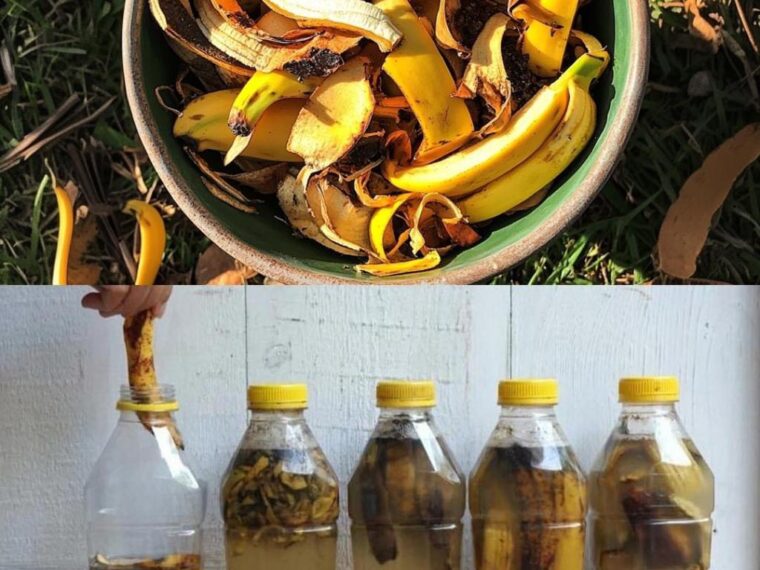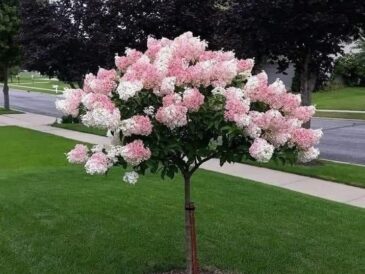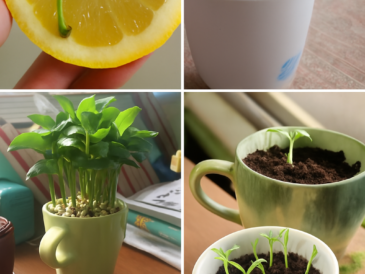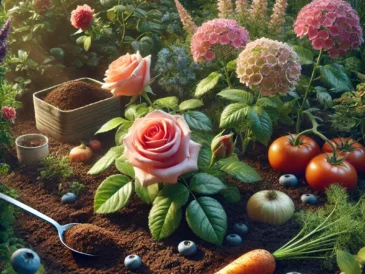B. Fermented Banana Peel Fertilizer
1. Ingredients:
• Banana peels
• Water
• A sealable container
2. Steps:
• Fill a container with banana peels and water.
• Leave it to ferment for 1-2 weeks (stir occasionally).
• Strain and dilute the liquid (1 part fertilizer to 4 parts water) before applying to plants.
3. Benefits:
• Increases nutrient availability through fermentation.
• Suitable for heavy feeders like tomatoes and peppers.C. Dry Banana Peel Fertilizer
1. Steps:
• Lay banana peels in a sunny spot or use a dehydrator.
• Once completely dry, grind them into powder.
• Sprinkle the powder around the base of plants or mix into soil.
2. Benefits:
• Easy to store and apply.
• Long-lasting slow-release fertilizer.D. Direct Soil Application
1. Steps:
• Chop banana peels into small pieces.
• Bury them a few inches deep around the base of plants.
2. Benefits:
• Slowly releases nutrients as the peels decompose.
• Encourages earthworm activity.- Tips for Success • Use Fresh Peels: Avoid using peels that are moldy or rotting.
• Balance Nutrients: Combine with other organic fertilizers for a well-rounded nutrient mix.
• Avoid Overuse: Too much potassium can imbalance soil nutrients.
• Composting Option: Add banana peels to your compost pile for an overall soil conditioner. - Plants That Love Banana Peel Fertilizer • Flowering Plants: Roses, hibiscus, and orchids.
• Fruiting Plants: Tomatoes, peppers, and cucumbers.
• Leafy Greens: Spinach, lettuce, and kale.
Banana peel fertilizer is an affordable and eco-friendly way to boost your garden’s health while reducing waste. Whether you’re growing flowers, vegetables, or houseplants, this natural fertilizer will provide them with essential nutrients.
Pages: 1 2




